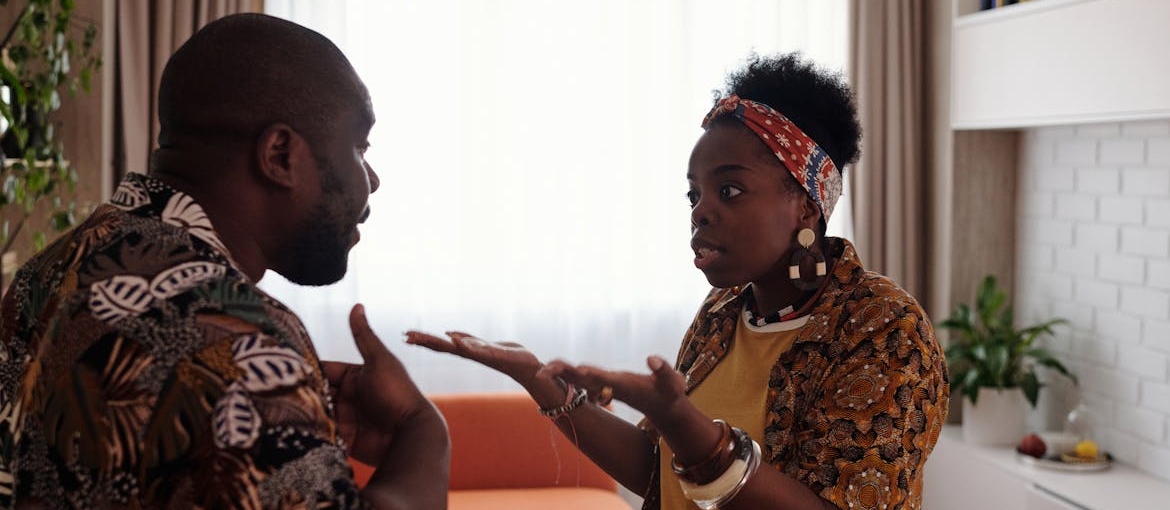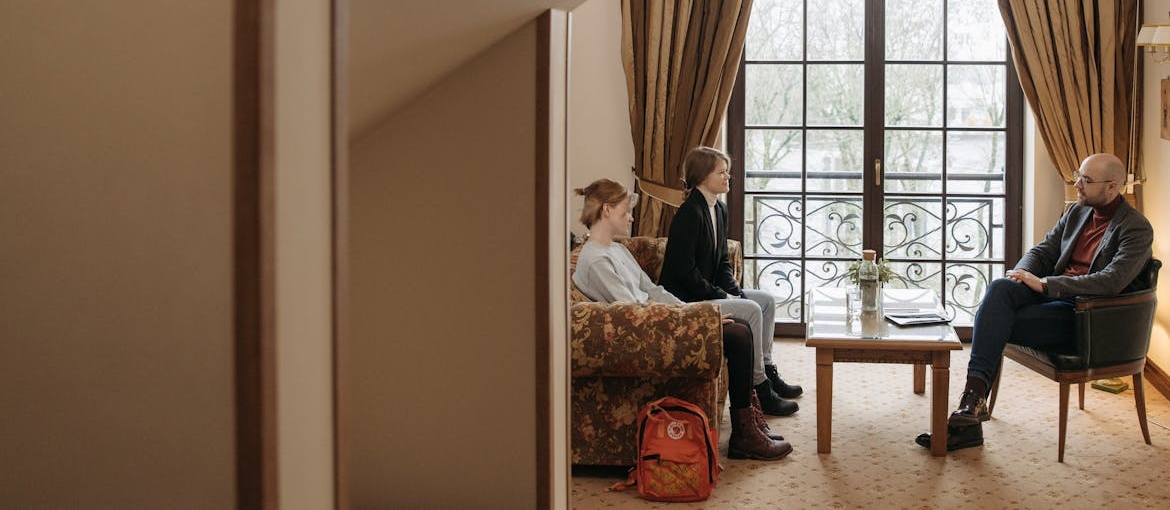Watching your child struggle with addiction can leave you feeling helpless, angry, and worn down. Many parents of addicts blame themselves or try to fix everything, but that rarely works. You may not be the one using, but the pain hits just as hard. Learning how to set clear boundaries can protect your well-being and support your child’s recovery at the same time. It’s not about being cold or walking away—it’s about stopping the cycle that keeps you both stuck. Support groups, therapy, and resources can help you regain control over your own life. Many addiction treatment centers in West Virginia also include family support in their programs, because they know recovery works better when families heal too. You don’t have to carry this alone. There are ways forward that don’t break you.
How Addiction Affects Families and Parents
Addiction changes everything. It pulls families into a cycle of stress, confusion, and pain. Parents of addicts often feel like they failed. Some carry guilt for years, even when it’s not their fault. It’s hard to watch your child lose control and not know how to help. Some people ask, why do drug addicts blame their parents?

The answer isn’t simple. Blame often comes from pain, denial, or fear—not truth. Still, those words hurt. They stick. If you’re a parent of drug addict children, you may feel isolated or judged. Many parents of addicts stop reaching out because they feel ashamed. But you don’t have to face this alone. Addiction affects the whole family, not just the person using. Support and education can help you get through it.
Why Setting Boundaries Matters for Parents of Addicts
Setting boundaries isn’t about punishment—it’s about protection. Parents of addicts often try to fix things by giving more time, money, or energy. That approach wears you down. Don’t wait until you hit a breaking point. Boundaries make recovery possible—for both of you. Here are a few examples:
- Saying no to money requests: It prevents unintentional support of substance use.
- Setting limits on contact: It protects your emotional well-being.
- Requiring treatment steps: It encourages personal responsibility.
- Not rescuing from consequences: It teaches accountability.
- Keeping home substance-free: It supports recovery.
How to Set Boundaries Without Guilt or Conflict
It’s hard to say no when your child is hurting. Many parents of addicts feel guilty for setting limits. But boundaries don’t mean you don’t care. They show love in a safer way. If you’re a parent of drug addict children, you’ve likely said yes when you wanted to say no. That pattern can keep everyone stuck. Instead, try being clear and calm. Let your child know what you can and can’t do.
Be ready for pushback, but don’t back down. You’re allowed to protect yourself. Some residential treatment facilities in WV also offer family support—ask about programs that help you learn how to set healthy limits. Parents of addicts who take care of their own needs often end up helping more. Boundaries give space for real change to happen. Start small. Stay steady.

Finding the Right Support as a Parent
It’s hard to hold things together when your child is in active addiction. Most parents of addicts feel like they’re barely managing. Finding the right support helps you feel less alone and gives you tools to move forward. It also helps you stop repeating the same cycle. Whether you’re a parent of a drug addict or one of many parents of addicted young adults, you’re not the only one dealing with this.
Support Groups for Parents of Addicts
You need people who understand what you’re going through. Support groups give you a place to talk, listen, and learn without judgment. They connect you with other parents of addicts who get it. If you’ve been trying to fix everything on your own, this is the first place to stop. You don’t have to carry all of it. Some groups to explore:
- Al-Anon: For families affected by alcohol use
- Nar-Anon: For families of drug users
- SMART Recovery Family & Friends
- PAL (Parents of Addicted Loved Ones)
- Online support forums and Facebook groups
Family Therapy and Counseling Options
Talking with a trained therapist can help families break old habits and build better ones. Family therapy isn’t about blame—it’s about real change. This can help parents of addicted adults talk through the fear, guilt, and stress that addiction brings. One method often used is cognitive behavioral therapy for substance use disorders, which teaches parents and children how to shift unhealthy thinking.
Many counselors work with families as part of larger treatment programs. Some sessions include everyone together. Others may focus on just the parent or just the child. If you’re unsure where to start, ask your local rehab center or doctor for a referral. You don’t need a full diagnosis to get help. You just need a safe space to talk, and a professional who knows how to help you move forward as a family.

Building a Personal Support Network
Even if you join a group or see a therapist, you still need support outside of formal settings. Talk to a friend who won’t judge. Let a family member in, even if it’s just a little. Many parents of drug addicted adults isolate themselves. But you don’t have to do this alone. Trust builds over time, not overnight.
If you feel stuck, ask a counselor about motivational interviewing for substance abuse—it helps both you and your child communicate better. Your support network doesn’t need to be big. It just needs to be steady. Focus on people who help you feel seen and strong. Don’t chase advice from people who don’t understand what you’re facing.
How Involvement Can Help Your Child’s Recovery
Staying involved in your child’s recovery process matters—but it’s hard to know how much to do or when to step back. Many parents of addicts want to help but feel unsure what works. Some worry they’ll make things worse. Others feel shut out. If you’re one of the many parents of addicted adults, you still play a role. But it has to come from a place of respect, not control.
When and How to Participate in Treatment
Treatment centers often welcome family involvement, especially during group sessions or family weeks. Ask your child’s provider if this is an option. Some programs include you early on, while others wait until your child has made progress. The right kind of support can help—but pushing too hard might backfire.
If your child is in benzo addiction treatment, ask staff how you can help without disrupting their progress. Maybe that means joining a call, writing a letter, or attending a group therapy session. Avoid trying to control the outcome. Listen more than you talk. Your presence can mean a lot, even when words are hard to find. Being involved shows your child that they’re not alone—and that you’re learning too. That message sticks, even during tough times.

Learning About Addiction as a Disease
Addiction is not just about poor choices. It changes how the brain works. It affects emotions, memory, and behavior. Once you understand this, it becomes easier to approach recovery with compassion instead of blame. Some parents of addicted young adults still believe that “tough love” is the only option. But education can change that. Learning how addiction works helps you see the full picture.
Programs like those at a rehab center Athens OH has often include classes or family education groups. These can explain the science behind cravings, relapse, and long-term recovery. If you’ve asked yourself, “do all addicts have childhood trauma?”, you’re not alone. The answer is—sometimes, but not always. Each person’s story is different. Learning more helps you focus on facts, not fear. And that helps everyone heal.
Encouraging Accountability Without Taking Control
Your child needs to take responsibility for their actions, but that doesn’t mean you should run the show. Finding the middle ground is tough. The goal is to help them face the truth without feeling judged. Instead of giving ultimatums, try setting clear, realistic limits. It’s okay to say, “I won’t give you money, but I’ll drive you to a meeting.” Some ideas that help:
- Offer support without solving every problem
- Avoid rescuing them from consequences
- Let them feel the results of their actions
- Praise small steps toward change
- Don’t argue when emotions are high

Long-Term Strategies for Family Healing
Addiction recovery takes time. And so does family healing. Parents of addicts often expect quick changes—but there’s no finish line here. If you’re searching for help for parents of drug addicted young adults, long-term planning matters. Recovery isn’t just about your child staying sober. It’s about everyone building something healthier. If you’re still wondering what are 4 common reasons for addiction relapse, the truth is: stress, emotional triggers, social pressure, and poor coping skills.
Staying Informed About Relapse and Recovery
Relapse doesn’t mean failure. It means more work is needed. Some parents of drug addicts panic the moment their child slips. That reaction can hurt more than help. Instead, learn the warning signs and know what to do if it happens. Some rehab programs—like veterans alcohol rehab programs—offer family relapse education. Ask your provider if that’s available. Learn about coping tools, emotional triggers, and support strategies.
When you stay informed, you act from knowledge, not panic. This helps your child feel supported, not judged. Relapse isn’t the end of recovery—it’s part of it. Families that stay calm and involved can make a big difference during those times.
Creating a Healthier Home Environment
A safe and calm home makes a difference in your child’s recovery—and your peace of mind. You don’t have to make big changes overnight. Start with your daily habits and routines. The goal is to create a space where people feel respected, heard, and safe. Avoid yelling or constant criticism. Keep alcohol or pills locked away if those were issues. Talk openly about struggles without shaming anyone. Some helpful steps include:
- Set daily routines that lower stress
- Limit access to addictive substances
- Create no-judgment zones for honest talks
- Cut back on toxic conversations
- Spend more time together without screens

Moving Forward Without Losing Hope
Your story doesn’t have to end with addiction. But it might take longer than you hoped. Many parents of adult addicts go through years of ups and downs. Staying hopeful doesn’t mean ignoring reality. It means finding ways to keep going, even when it’s hard. You don’t have to fix everything. You just have to keep showing up.
Your child’s choices are theirs. Your healing is yours. Don’t stop looking for hope. It can show up in the smallest wins—like a clean week, a calm talk, or one honest moment. That’s how recovery begins.
When You’re Ready to Take the Next Step
You’re not alone in this. Many parents of addicts feel lost, tired, and unsure of what to do next. Setting boundaries doesn’t mean you’ve given up—it means you care enough to stop doing what doesn’t work. It’s okay to say no. It’s okay to protect your peace. Support is out there, and you don’t have to figure everything out on your own. Talk to other parents, reach out to professionals, and take care of yourself too. Your health and stability matter. When you get the right help, you’re in a better place to support your child’s recovery. There’s no perfect way to do this, but small steps make a big difference. Keep showing up. Keep learning. Healing takes time, for everyone involved—but it starts with you making one strong, clear choice.



